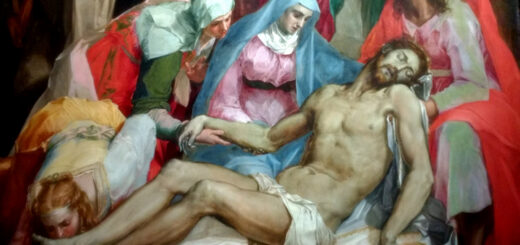When we were fags. Homosexuals in the Italy of the economic boom
Katya Parente's dialogue with Andrea Pini
In a previous article we had a guest Sebastian Buckle, which outlined for us the recent history of homosexuality in England. Today our welcome guest is Andrea Pini, who will talk to us about our country.
Andrea is the author of the book “When we were fags. Homosexuals in the Italy of the past” which tells the hard and repressed life of local gays in the years of the economic boom.
Your book is about the 1960s. Is it possible that in an era so full of new ideas and revolutionary policies (even in Italy) the condition of male homosexuals was so miserable?
Using the term petty is already a judgment, I would say a pre-judgment. Each condition must be studied in its historical and social context. In the 1960s, homosexuality was considered by everyone (homosexuals and non-homosexuals) as a terrible shame. Very few managed to remain indifferent in the face of that ferocious condemnation. Pasolini himself, due to his homosexuality, had to escape from his native Friuli and try to start a life from scratch (he was very poor) in Rome.
Therefore the majority of male homosexuals were forced and obliged by common judgment to live their sexuality secretly in those places and in those forms that I describe in the book "When we were fags” (cinemas, Vespasians, parks, places of male prostitution, small private parties, etc.). Lesbians, on the other hand, did not have any form of "public" association with other lesbians and, what little happened, was born in the confines of homes, in restricted and even more secret circles.
Towards the end of the 1960s the "gay revolution" broke out in New York, precisely on the night of 28 June 1969. From that moment a slow evolution of the homosexual condition began in Europe and Italy too and the possibility of a new public visibility was born thanks to the newborn gay movement. In Italy it is the OUTSIDE that is the pioneer starting from the end of 1971 and the beginning of 1972.
To return to the initial phrase you used – the petty condition of homosexuality – I would add that the mentality of the time was petty, with (against) which homosexuals of the time had to deal. Today, however, we call that mentality homophobic.
For the book you interviewed the protagonists of the time. How did you manage to track them down? Have you found anyone more reluctant than the others to tell their story/tell?
I struggled to find a sufficient number of homosexuals to interview for my book: I wanted to reach 20, a small number but large enough to be able to attempt some general considerations. It was easy for some more or less well-known characters that I was lucky enough to have as friends (Paolo Poli, Corrado Levi, Vinicio Diamanti, Dominot and others), who however represented a certain type of homosexuals (artists, intellectuals) and who was able to have a freer and more unscrupulous life than average.
But I also wanted to interview ordinary homosexuals and those were more difficult people to identify and get to know. Once the person was hooked, each of them spoke about their life with great openness. I worked by word of mouth, which is why it took me several years to complete my work. Then I was lucky enough to be able to interview Aldo Braibanti, perhaps the most shy man of all those I have been able to meet. And his interview – one of the very few that Aldo gave in his entire life – is perhaps the most precious for me.
The period you are dealing with is relatively recent, balanced between custom and history. How did you manage?
I tried to tell those lives with an eye always turned to the historical context (in the broadest sense) that each of them had around them. I was above all interested in trying to describe a piece of Italian society - in which homosexual men and women were immersed - both from the social and customs point of view, and from the cultural-political point of view, moving from the intimacy of more or less clandestine encounters, to newspapers and magazines that told (almost always with malice, sometimes with judgmental pietism) the life of homosexuals, to books and films that represented it.
I only focused on the period from the Second World War to the moment of the birth of the Italian gay movement. Which was a period of enormous social, cultural, customs and even political changes for all citizens, including, fortunately, also homosexual citizens (which is not to be taken for granted).
“Faggots” is a term that today is insulting. Can we reappropriate an offensive term in a positive way? If so, what is the underlying psychological path?
I am not a psychologist and therefore I will try to answer you as an activist and a writer. A term is offensive when the person using it intends to offend you or didn't think it might offend you. Fagot can be an insult, but if it is used by a group of gays in a joking or conscious way (for example in a conversation between friends I could easily say 'I'm a fagot') then the situation changes.
By using it in the title of my book, however, I also wanted to send a message: the fagots I am referring to are the fagots of the past, the object of offenses, but now it is more difficult to offend us by calling ourselves fagots, because I am the one who I define myself as a faggot.
In this way I use the weapon of offense and suggest that a strong change has already taken place: once upon a time you called us fagots to offend us and we were forced to suffer, now we call ourselves gays and lesbians, people with rights and demands positive.
There has therefore been a reversal of values, marked by the conquest of new visibility and new rights, such as that of LGBT marriage (now we are waiting for the anti-discrimination law, the Zan law, which this parliament could approve). And speaking of new visibility, isn't it true that the new transportation minister of the Biden government is called Pete Buttigieg and is openly gay, while the new health minister of the same government is Rachel Levine, a transgender woman? Until the day before yesterday, this did not happen and could not happen with the newly replaced US president: every historical and political phase corresponds to a certain type of gay, lesbian and transgender visibility.
We hope that this political visibility is not limited neither to the USA nor to other European countries (Xavier Bettel, prime minister of Luxembourg or the more recent Petra De Sutter, transgender and deputy prime minister of the Belgian government) but is also possible in Italy, and not in biblical times.






